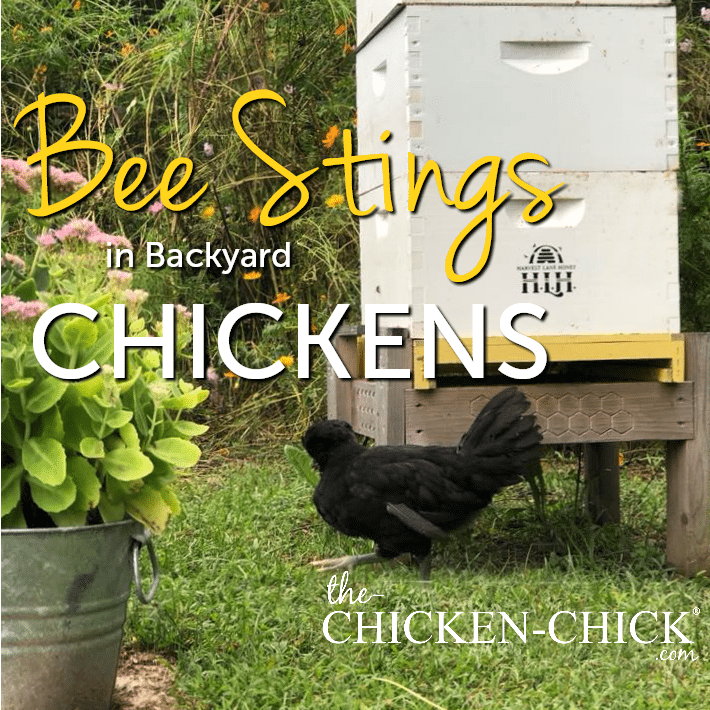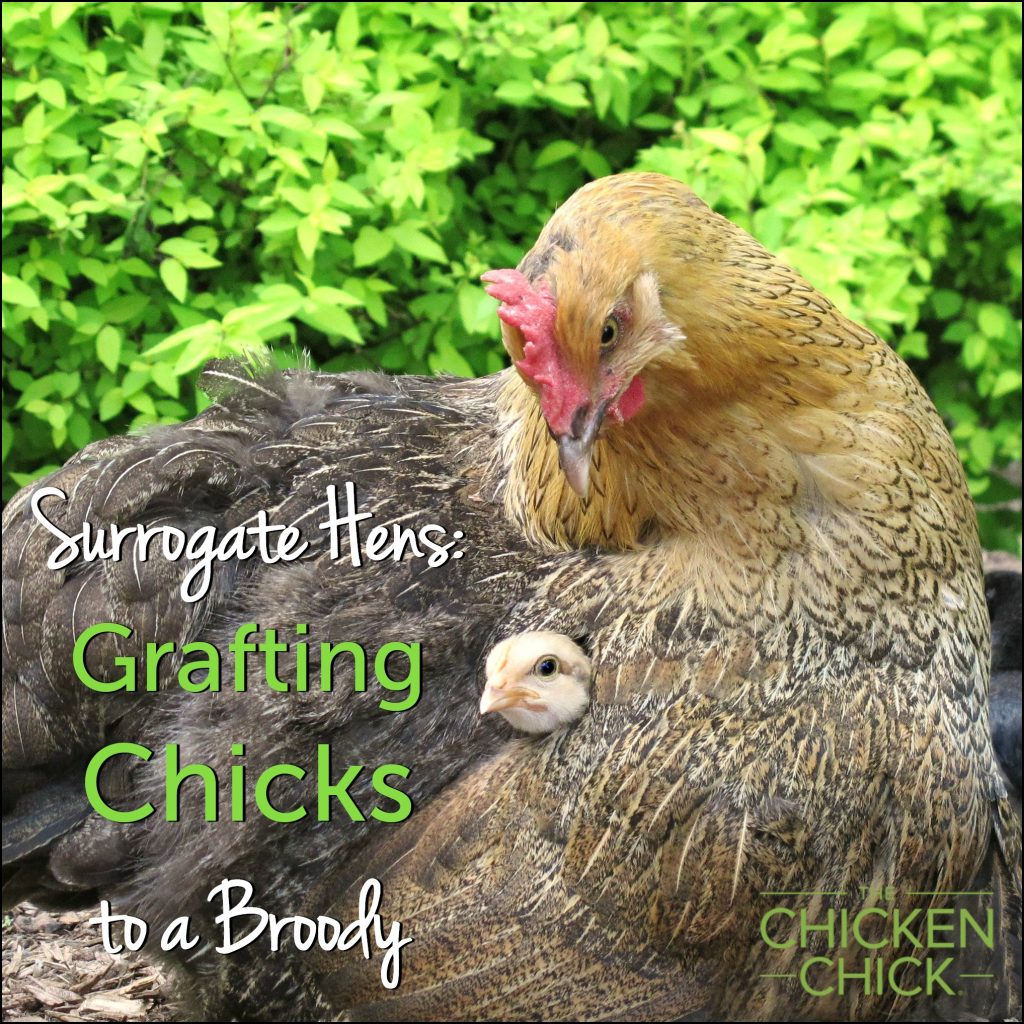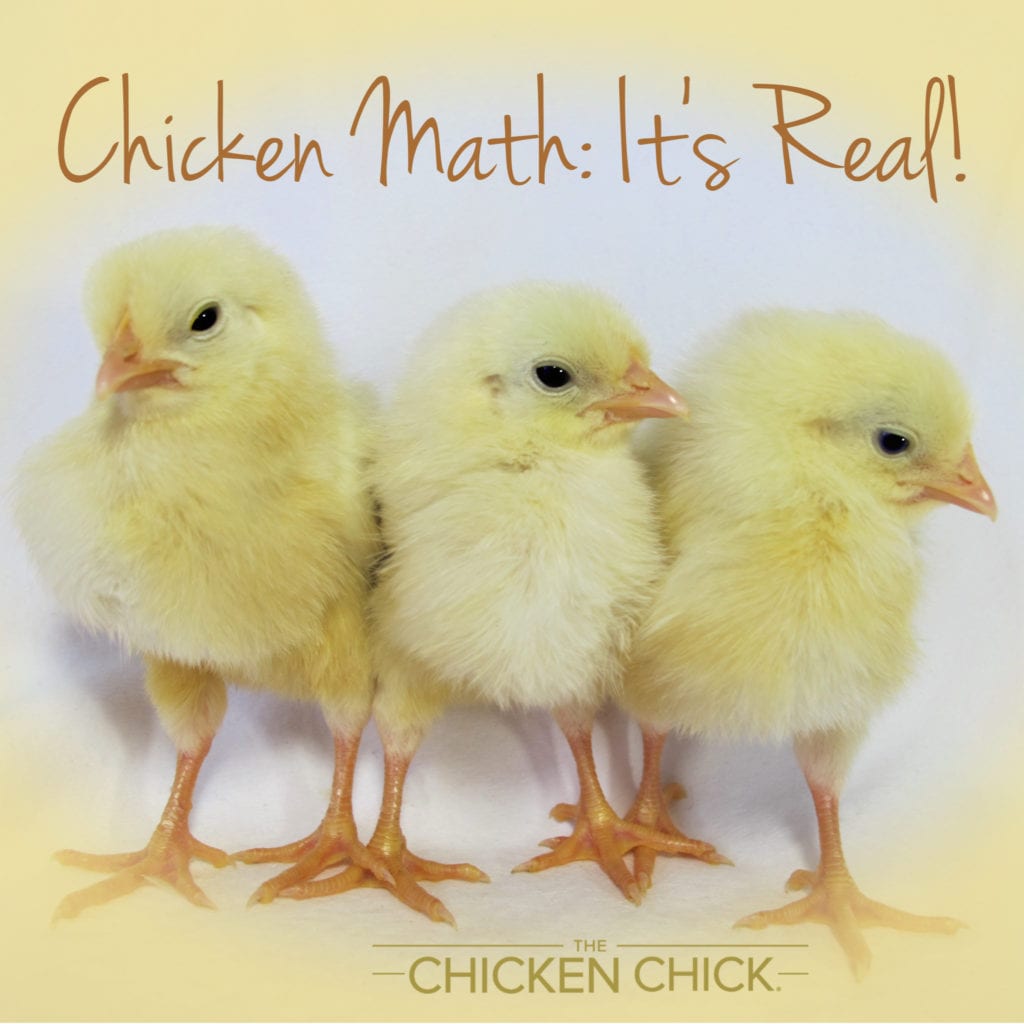Since my flock shares a backyard with tens of thousands of honey bees, I wanted to understand the possible implications of a bee sting to one of them. Should chickens kept in the same yard as bees expect to be stung? What happens when a chicken is stung by a bee- do they respond physically the same way people do? Will the sting hurt, swell or itch? Should they be treated with medication?
Unfortunately, I could find no authoritative discussion of this subject, so I asked a veterinarian who also keeps chickens and bees in her backyard for her expert insight. Dr. Alexzandra Mosel, DVM, a practicing veterinarian in Connecticut, told me that there is a lot of misleading information about raising chickens and honey bees together and was happy to help address the questions.
Some chicken keepers place their beehive(s) inside their chicken run to provide them the same security from raccoons, bears, and skunks that it offers chickens, and while bees may occasionally sting a chicken that gets too close to the entrance of a beehive, she does so only in defense of her colony. Honey bees won’t seek out victims aggressively as wasps can. Dr. Mosel said that most chickens heal from a bee sting without intervention and will ordinarily keep a respectful distance from the hives thereafter.

My beehives share the backyard with my chickens’ coops.

These three honey bees (apis mellifera) killed the yellow jacket (wasp) as it attempted to get into the hive. Wasps are aggressive, honey bees only sting defensively.
According to Dr. Mosel, a chicken’s immune system responds to a bee sting differently from a human’s or dog’s; a human’s immune system releases histamines, which cause the symptoms we associate with an allergic reaction, namely. swelling, itching, redness, and warmth. We might take an antihistamine like Benadryl to reduce those symptoms, however, a chicken’s immune system is not histamine mediated, which means that when a chicken is stung by a bee, other parts of their immune system respond to the sting. Antihistamines will not help a chicken’s response to a bee sting if one even occurs.
There certainly are many claims by chicken keepers who have given antihistamines to their birds that they are effective in treating bee stings, but this is likely secondary to the sedative effect many antihistamine medications produce. This drowsiness is likely responsible for the majority of these short-term successes you may hear about. If a chicken is stung by a bee and is symptomatic, meaning they seem painful or have minor swelling or redness to the sting site, the best treatment is a good NSAID like meloxicam, not an antihistamine. (Meloxicam is only available by prescription from a veterinarian.) As always, any concerns about a more serious reaction should be handled by a veterinarian.

Conventional beekeeping wisdom has it that dark colors such as black and brown agitate bees because common predators such as skunks and bears are dark colored, which is why beekeepers’ gear is typically white.
Dr. Alexzandra Mosel earned her Doctorate of Veterinary Medicine from Tufts University, Cummings School of Veterinary Medicine; her special interests are surgery, behavior, backyard chickens and honeybee medicine.
Kathy Shea Mormino
Affectionately known internationally as The Chicken Chick®, Kathy Shea Mormino shares a fun-loving, informative style to raising backyard chickens. …Read on


shop my SPONSORS
Since my flock shares a backyard with tens of thousands of honey bees, I wanted to understand the possible implications of a bee sting to one of them. Should chickens kept in the same yard as bees expect to be stung? What happens when a chicken is stung by a bee- do they respond physically the same way people do? Will the sting hurt, swell or itch? Should they be treated with medication?
Unfortunately, I could find no authoritative discussion of this subject, so I asked a veterinarian who also keeps chickens and bees in her backyard for her expert insight. Dr. Alexzandra Mosel, DVM, a practicing veterinarian in Connecticut, told me that there is a lot of misleading information about raising chickens and honey bees together and was happy to help address the questions.
Some chicken keepers place their beehive(s) inside their chicken run to provide them the same security from raccoons, bears, and skunks that it offers chickens, and while bees may occasionally sting a chicken that gets too close to the entrance of a beehive, she does so only in defense of her colony. Honey bees won’t seek out victims aggressively as wasps can. Dr. Mosel said that most chickens heal from a bee sting without intervention and will ordinarily keep a respectful distance from the hives thereafter.

My beehives share the backyard with my chickens’ coops.

These three honey bees (apis mellifera) killed the yellow jacket (wasp) as it attempted to get into the hive. Wasps are aggressive, honey bees only sting defensively.
According to Dr. Mosel, a chicken’s immune system responds to a bee sting differently from a human’s or dog’s; a human’s immune system releases histamines, which cause the symptoms we associate with an allergic reaction, namely. swelling, itching, redness, and warmth. We might take an antihistamine like Benadryl to reduce those symptoms, however, a chicken’s immune system is not histamine mediated, which means that when a chicken is stung by a bee, other parts of their immune system respond to the sting. Antihistamines will not help a chicken’s response to a bee sting if one even occurs.
There certainly are many claims by chicken keepers who have given antihistamines to their birds that they are effective in treating bee stings, but this is likely secondary to the sedative effect many antihistamine medications produce. This drowsiness is likely responsible for the majority of these short-term successes you may hear about. If a chicken is stung by a bee and is symptomatic, meaning they seem painful or have minor swelling or redness to the sting site, the best treatment is a good NSAID like meloxicam, not an antihistamine. (Meloxicam is only available by prescription from a veterinarian.) As always, any concerns about a more serious reaction should be handled by a veterinarian.

Conventional beekeeping wisdom has it that dark colors such as black and brown agitate bees because common predators such as skunks and bears are dark colored, which is why beekeepers’ gear is typically white.
Dr. Alexzandra Mosel earned her Doctorate of Veterinary Medicine from Tufts University, Cummings School of Veterinary Medicine; her special interests are surgery, behavior, backyard chickens and honeybee medicine.





























I need to keep a closer eye my girls , didn’t even think of this danger.
It has often worried me that bees or ants might sting my girls, I hate this reality. I’m gonna keep a closer eye out on this.
Thanks for the info on bee’s and chickens.
Thank you for the info on bee’s.
Very interesting.